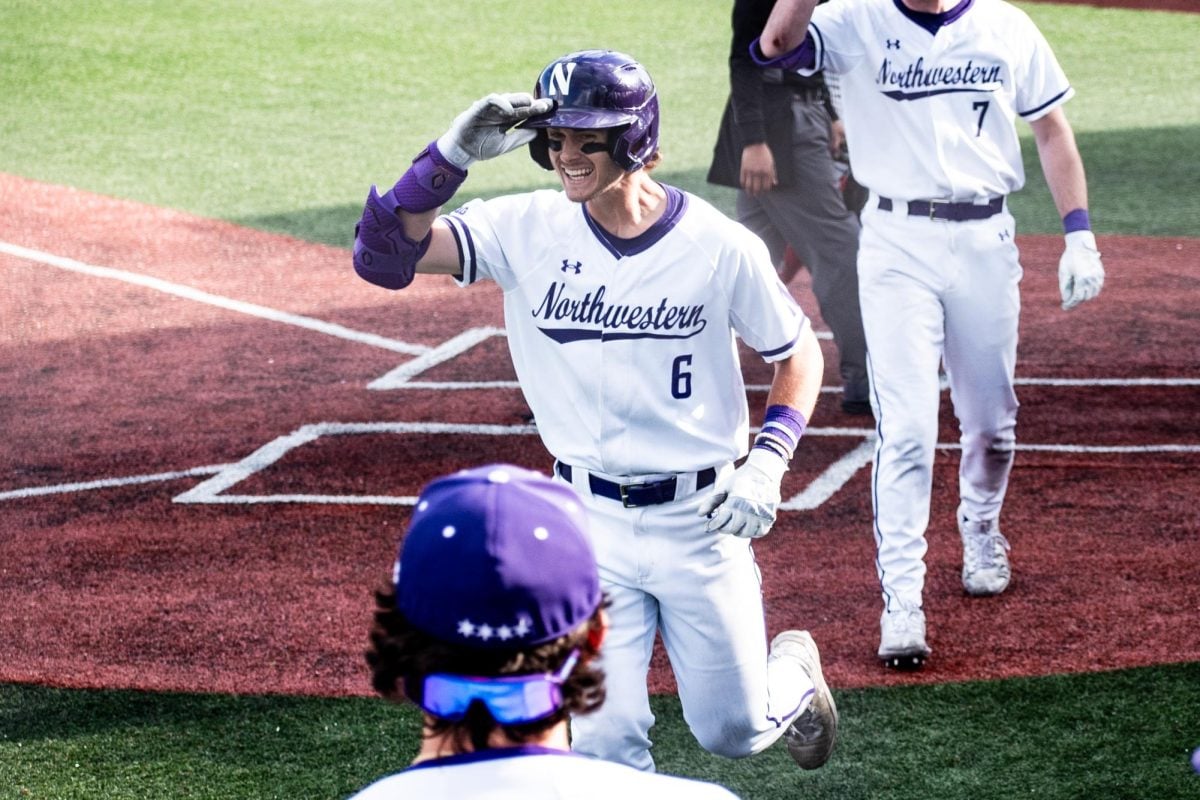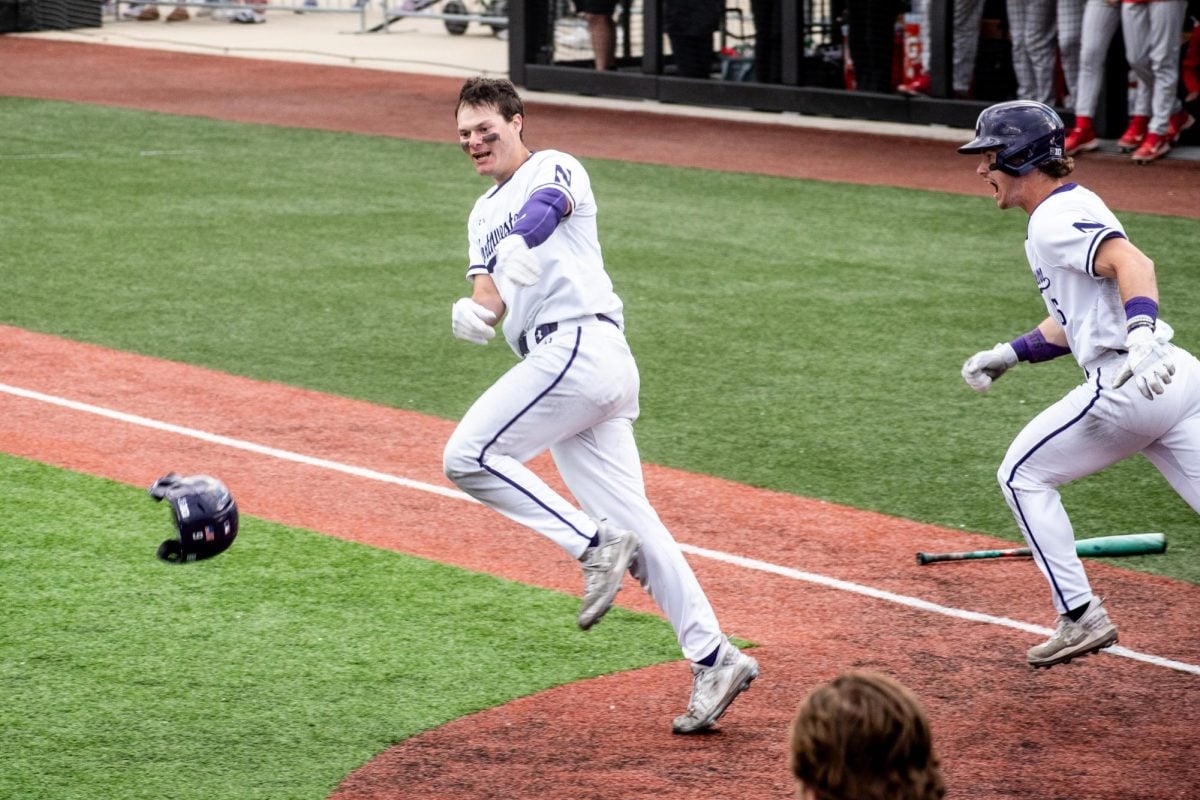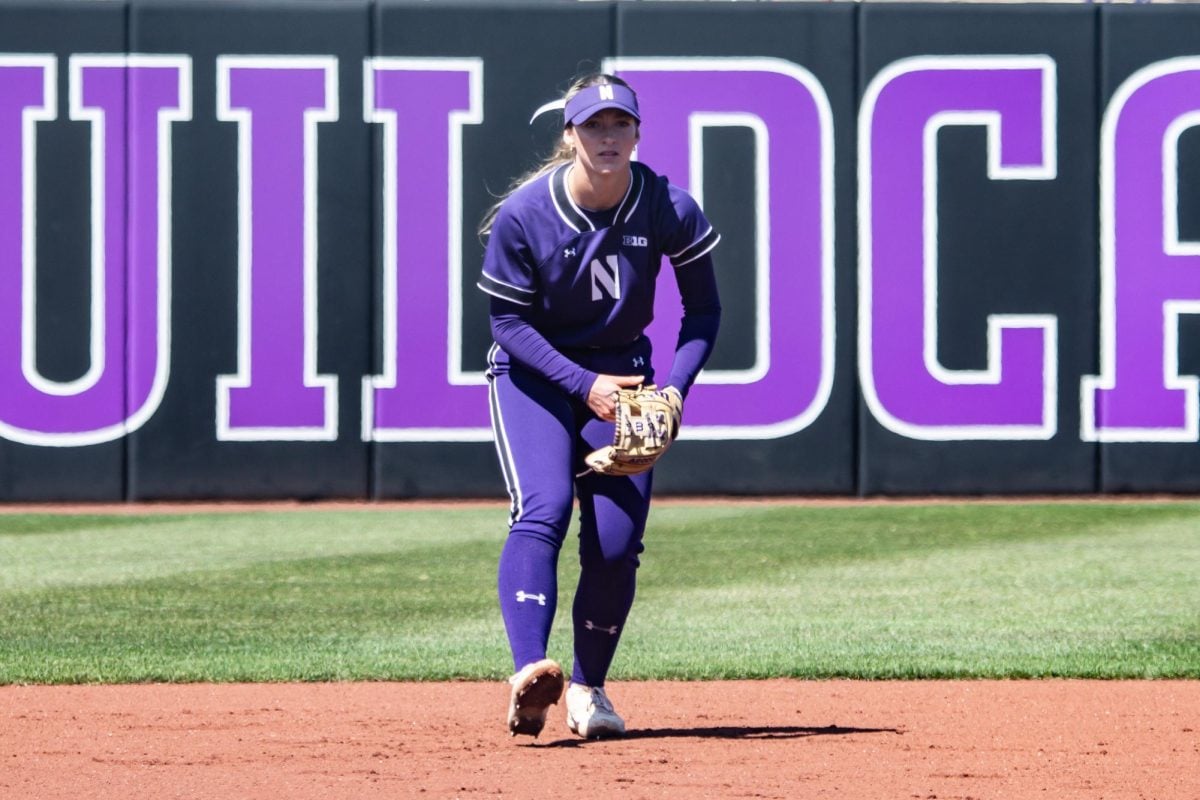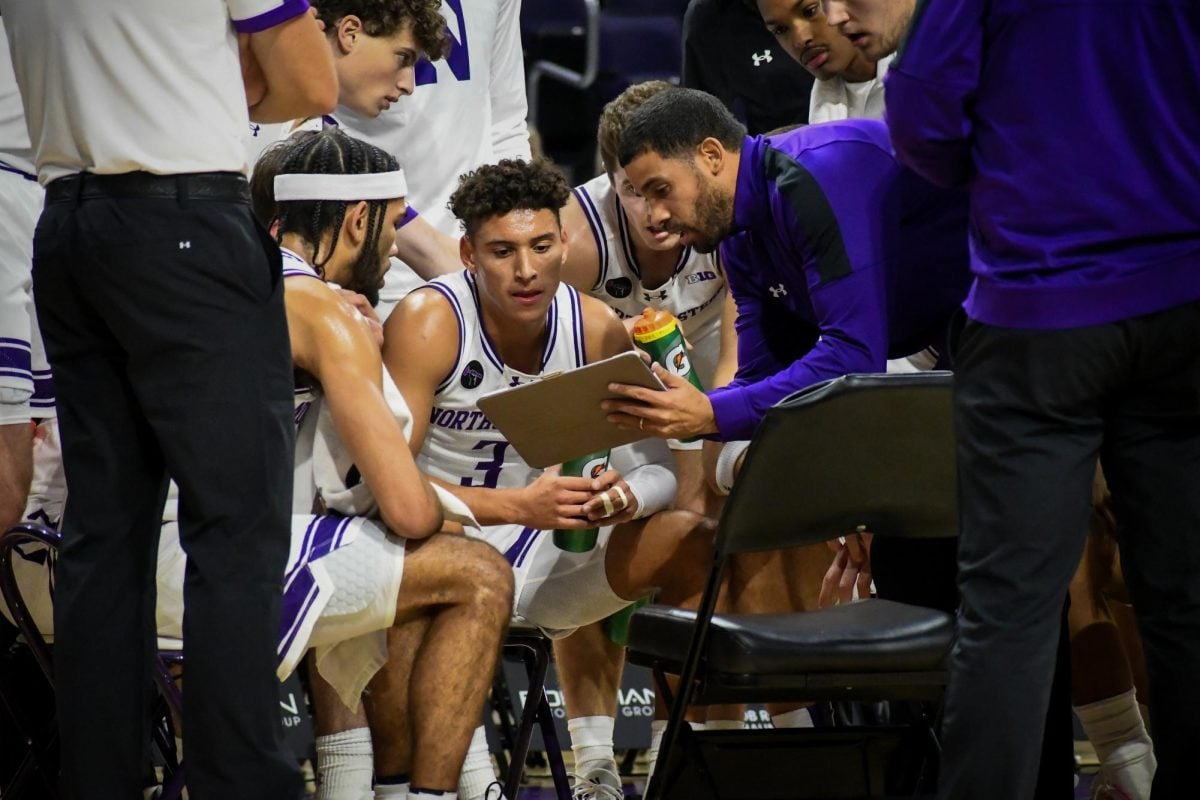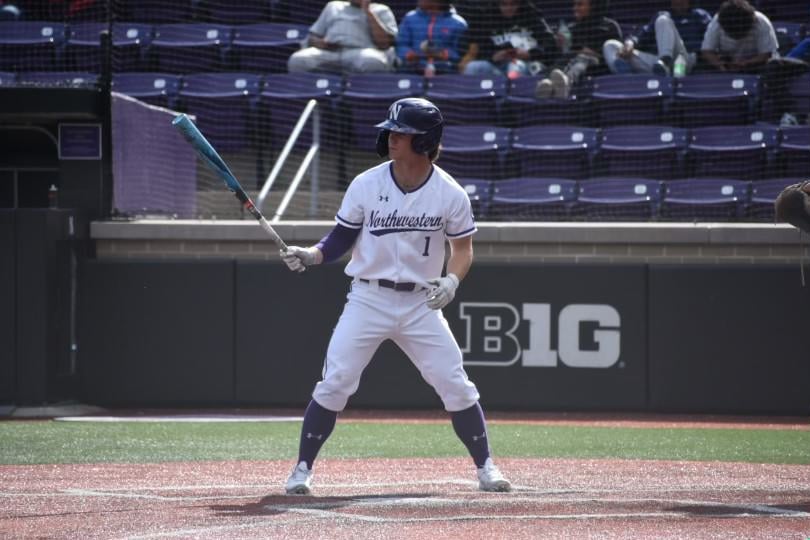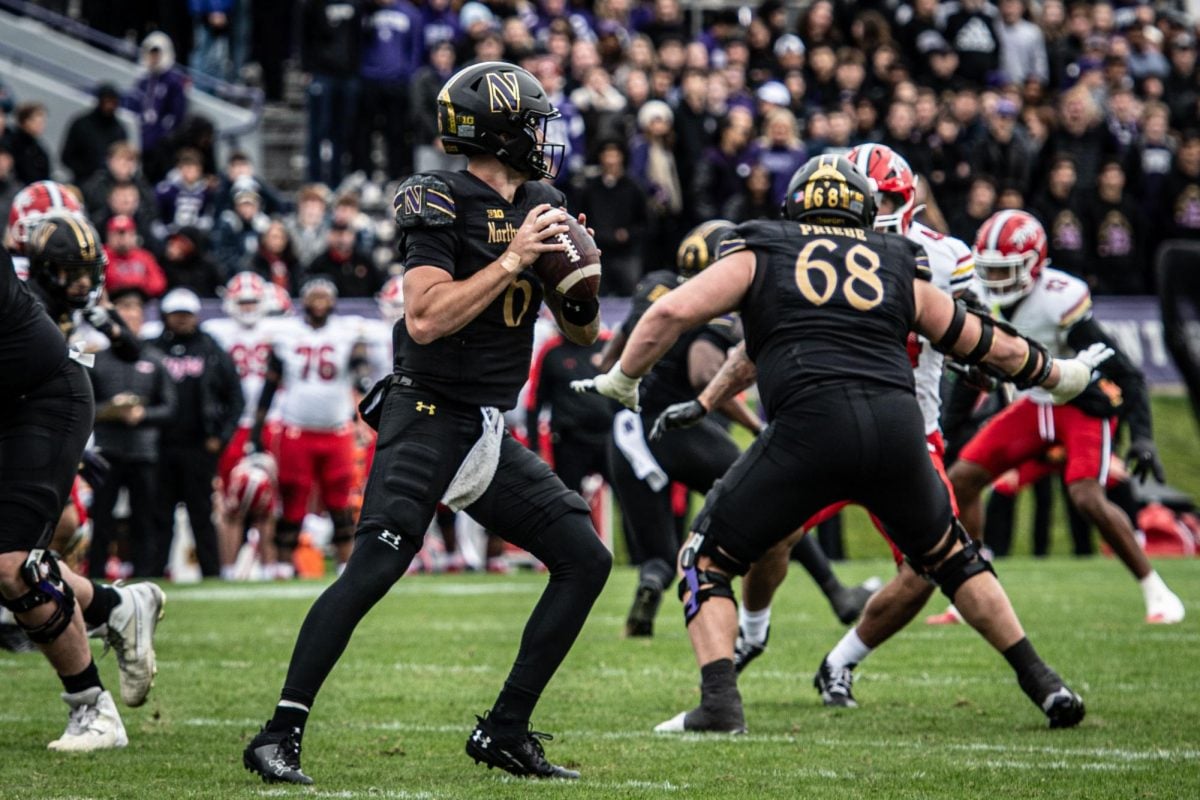After spending more than 15 years in the major leagues and managing the World Series Champion New York Yankees, it would be easy for Joe Girardi to let baseball consume his life. But relationships have always been more important to him.
Especially the one with his father.
Months after winning his first of four World Series titles in 1996, Girardi asked his father, Gerald, to join him at the podium of his Northwestern Athletic Hall of Fame induction. Joe then presented his father with his championship ring, a modest token of appreciation for the man who devoted his life to the success and well-being of his family. A child of the Great Depression and working class father of five, Gerald was never one to dwell on things or gripe, his emotions sewn tight like the stitches of a baseball. But on stage at the induction, the typically composed and unemotional father stared into the eyes of his son and tears began to swell. Then they ran.
This unbridled moment of father-son pride was one of the last of its kind. The once-tearful father rarely opens his eyes when Joe visits him these days. When he does glance at his son, it’s as if he’s staring into thin air. Gerald began showing signs of Alzheimer’s decades ago, calling his children by the wrong name. In 2006 he was checked into an assisted living facility. With his father’s conditions worsening, Joe had to take back the ring for safe keeping.
“I miss him,” said Girardi in an interview Monday. “That’s the biggest feeling that I have, just not being able to talk to my father. We shared so many wonderful memories together since I was a little boy because I went everywhere he went.”
Girardi said he enjoyed being a boy glued to his father into his 40s. “It wasn’t until the last three or four years that we haven’t been able to share a lot, and now it’s nothing.”
Joe’s memories of his father trace back to acts that may have been small at the time, but comprised a lifetime of support. Despite working three jobs, Gerald found time to be the cook for the football team at Spalding Institute in Peoria, Ill., where Joe played quarterback in high school. During Joe’s minor league days, he would grab a brown bag lunch his father packed. Gerald introduced Joe to the roaring crowds at Wrigley Field and the quaint Canadian lakes where the old man gave his son fishing tutorials.
Gerald would be upset if he let work get in the way of time with his children, so after long weeks as a salesman by day and part-time bartender by night, he would sometimes bring his children to his third job as a weekend bricklayer. Mortar was spread and red slabs were stacked, cementing the bond between father and son.
Considering these moments of closeness, it is no wonder Joe said he resembles his father. Staring into the Yankees dugout, the manager sports a crew-cut, his arms crossed, stoic and antisocial. The only sight of activity occurres along his jaw line, which bulges with each chomp of gum, and at his chest, which he swivels around from right to left as transference of nervous energy. Girardi approaches managing like a workman, baseball’s bricklayer.
Beyond the attitude Joe adopted from his father is another component playing out in his everyday life. Joe is widely known by fans for his pinstripe coding and championship rings. But those lucky enough to get closer to the Yankee know him most for caring about people in a way that extends beyond his role as a parent, manager and public figure. The intensity of the relationship between Joe and his father served as a blueprint for how Joe would approach others, a sort of guide for how to engage with people on a deeply personal level.
When he looks back on his career, Girardi does not remember what the pitch count was when he got a big hit or what runner he threw out to preserve his team’s lead. “The interesting things you remember when you’re done playing are the relationships,” he said, referencing former coaches and teammates Don Zimmer, Mike Harkey, Paul O’Neill, David Cone and Dante Bichette, who he named his son after. “I don’t remember games, I remember people.”In 1982 Evanston was a place where Girardi could put his tools of affability and compassion to work. NU baseball coach Paul Stevens was one of several people at the school to form a lifelong bond with Girardi.
Stevens was an assistant coach for the Wildcats during Girardi’s college career and saw the catcher grow into a leader on and off the field. The coaching staff realized early the industrial engineering major had a keen sense of the game and bestowed him with the pitch-calling duties, a task freshmen are rarely given.
“Joe was always somebody who was a student of the game,” Stevens said. “His engineering side of what he did in the classroom carries over into what he does as a coach now. He’s meticulous.”
Girardi has maintained a close relationship with his former coach despite his fame and World Series titles.
“Joe has been the friend that he has been over the years,” Stevens said, “and that’s special because there aren’t a whole lot of those people around that you can pick up the phone and you know that the person on the other end has got two ears, is listening and is someone that cares about what’s going on.”
The feeling is mutual. Stevens’ father died of Alzheimer’s, and when he and Girardi get together for coffee, the former NU catcher said he sees a source of solace and comfort across the table. Evanston was also where Girardi met Kim Innocenzi, his future wife and mother of their three children. One night at the Alpha Tau Omega fraternity house, Kim lost an earring. Girardi seized the opportunity and discovered the buried treasure. Three years after graduating, Girardi asked Kim to marry him, a decision his father urged when the couple was just two weeks into their relationship.
“She’s been the wind beneath my wings, which was the song at our wedding,” Girardi said. Girardi added Kim “led me to the lord,” giving him a new type of strength, one that he relies on during the most trying episodes in his life.
Girardi watched his mother work through pain for much of his adolescence, until she died from ovarian cancer in 1984.
“There was a lot of confusion,” Girardi said of the time after her death, the first time he questioned pursuing a life in baseball, the game he loved since he was 4 years-old. “I had kind of lost my passion because I used to feel like I played to keep my mom alive. I had to do some searching.”
During this moment of doubt, it was Kim who led him beside still waters.
“I came home for a week, and Kim said God gave me a gift, and I needed to use my gift,” Girardi said. “I went back and about two years later, I was in the big leagues.”
Some managers seal themselves into the game so much that nothing else matters. Former Yankee Manager Buck Showalter spent so many nights reviewing game tape in his office that he had to bring in a pullout couch. Girardi repays his debt to Kim by not letting baseball get in the way of what is most important.
“Our relationship comes first and foremost,” he said. “We have put a lot of time into it, to make it grow year after year, and we have fun together.” While not as romantic as his bond with Kim, Girardi’s relationship with NU teammate Grady Hall has been equally spiritual. The two freshmen formed a classic pairing of the odd couple. Girardi was the stocky, pragmatic team leader, while 60-and-a-half feet from home plate stood the gangly, blithe southpaw who wore No. 13.
But like a breaking ball in a fastball count, something unexpected can lead to the desired result.
“One of the things that bonded Joey and I so much was the yin to yang,” Hall said. “Between Joe and I, there was very much a balance. When I needed structure, I got structure and Joe was very much a part of that. When Joe needed to relax, I had the ability to provide the resource for that.”
During their senior season, wanderlust led the two battery mates off the field and out on the open road. Along with
then-coach Ron Wellman, they saddled up for an overnight trip to North Carolina that proved to be transformative for the young men. Much like the Beatniks of a generation before them, the ballplayers packed into a van where they filled the air with fodder, sauntered silently through the off-road woods and expressed who they were, while unknowingly searching to find out who they could be.
“It was almost like nothing was said, but so many things were communicated,” Hall said. “It was an opportunity for the three of us to bond beyond the parameters of baseball. That was one of the things that cemented my relationship with Joe. I knew we’d be friends for the rest of our lives.”
Hall was determined to make that statement true and in 2006 he began organizing two team reunions. The second was to be a surprise gathering at Girardi’s home to celebrate his first season as manager of the Florida Marlins. About 30 former NU baseball players, coaches and their families attended. Unbeknownst to Hall, the event became on opportunity to restore a weakened Girardi.
“It was probably my hardest time in baseball,” said Girardi, who was fired two months later.
While spending time with Girardi during Spring Training, Hall sensed the Florida front office was at odds with their new manager. Hall was not surprised to see his friend get beat up and dropped like a rosin bag.
“The writing was actually already on the wall,” Hall said. “Whether it was one year or two years, it didn’t feel like a long-lasting relationship, that’s for sure.”
The summer visit was a chance for celebration and venting. Girardi opened his front door to find a gaggle of supporters ready to remind him that his baseball career was far from over.
“During a tough time of my life I was grateful to have guys that could make me laugh and smile,” Girardi recalled.
The grief did not last long. Girardi spent a season broadcasting for the New York Yankees, and the team took him out of the booth and plugged him into the dugout as manager in 2008.
“I always had a feeling that Joe was going to be an amazing big league manager,” said Hall, who shared the magnitude of Girardi’s new gig alongside Kim. Sitting in the first row, staring up into the uproarious belly of Yankee Stadium, Hall looked over at Kim and saw her taking it all in when she said, “This is great, isn’t it?”
“It was a great moment,” Hall remembered. “This is a little crazy. Here’s Joe, managing the New York Yankees in Yankee Stadium.”
The people who Girardi cherishes have felt blessed by his generosity and in return have guided him through periods when he was adrift and crestfallen. Recently, these people consoled him during his failed 2008 campaign in New York and then rejoiced in November when he managed the Yankees to a World Series title. But the man who once formed the core of this circle remained on the outside. Were Gerald able to recognize his son’s managerial feat, Girardi imagines his workhorse of a father would say: “Job well done. Now continue to press forward.”
Were Gerald able, he might say something similar to help Joe through their current disconnect. But if Joe learned anything from his father, it is how to be resilient and feel confident he has a wealth of support. Though Gerald is no longer able to mount bricks beside Joe on Saturdays, cook him pizza or teach him the art of casting a line, he no longer has to. Father and son can rest assured there are others waiting to answer the call.[email protected]

